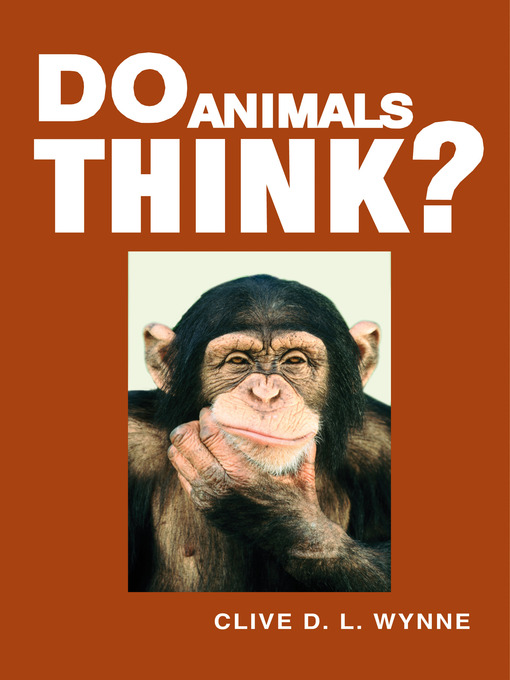Does your dog know when you've had a bad day? Can your cat tell that the coffee pot you left on might start a fire? Could a chimpanzee be trained to program your computer? In this provocative book, noted animal expert Clive Wynne debunks some commonly held notions about our furry friends. It may be romantic to ascribe human qualities to critters, he argues, but it's not very realistic. While animals are by no means dumb, they don't think the same way we do. Contrary to what many popular television shows would have us believe, animals have neither the "theory-of-mind" capabilities that humans have (that is, they are not conscious of what others are thinking) nor the capacity for higher-level reasoning. So, in Wynne's view, when Fido greets your arrival by nudging your leg, he's more apt to be asking for dinner than commiserating with your job stress.
That's not to say that animals don't possess remarkable abilities—and Do Animals Think? explores countless examples: there's the honeybee, which not only remembers where it found food but communicates this information to its hivemates through an elaborate dance. And how about the sonar-guided bat, which locates flying insects in the dark of night and devours lunch on the wing?
Engagingly written, Do Animals Think? takes aim at the work of such renowned animal rights advocates as Peter Singer and Jane Goodall for falsely humanizing animals. Far from impoverishing our view of the animal kingdom, however, it underscores how the world is richer for having such a diversity of minds—be they of the animal or human variety.
- Recently Added Audiobooks
- All Audiobooks
- Quick Listens
- Full Cast Audiobooks
- Family Road Trip Listening (OD Max)
- Audiobooks narrated by Simon Vance
- Audiobooks narrated by Scott Brick
- Audiobooks narrated by Julia Whelan
- The Great Outdoors
- See all audiobooks collections


